EU Competitiveness in a Global Arena:
Charting the Path Forward
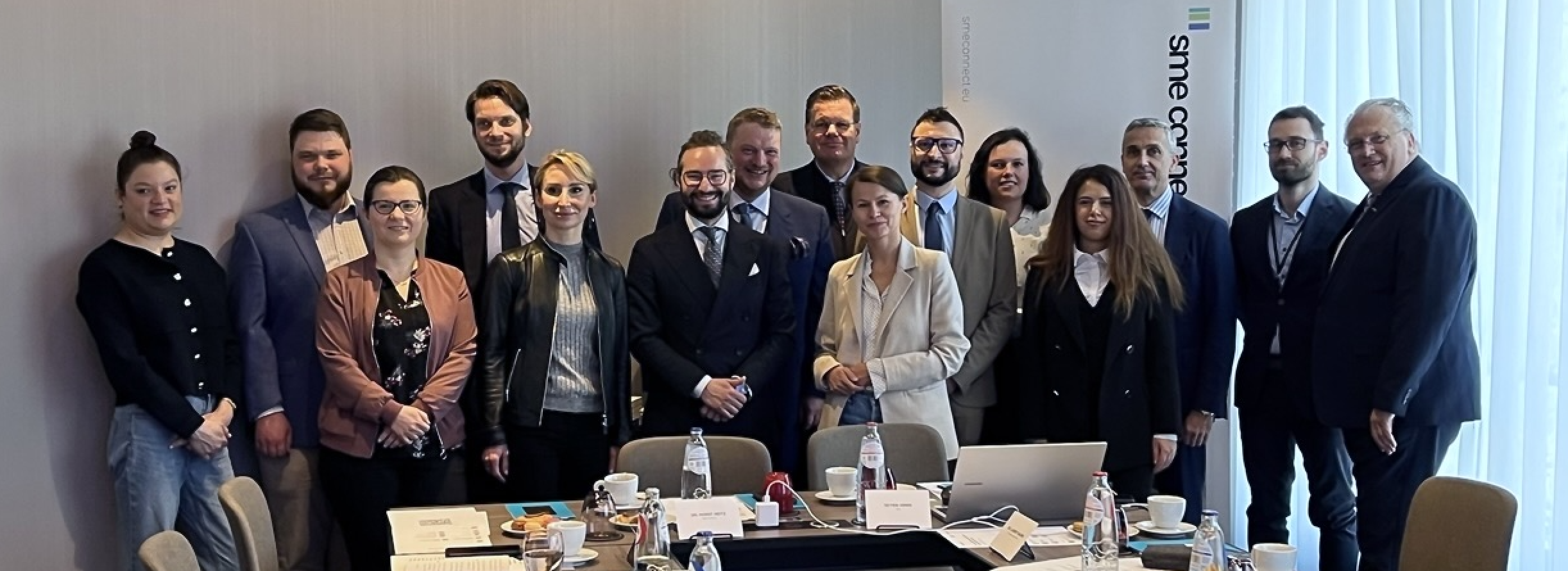
On Wednesday, April 10th, SME Connect in cooperation with the Union of Entrepreneurs and Employers (ZPP) and the European Enterprise Alliance organized a networking event on “EU Competitiveness in a Global Arena: Charting the Path Forward” at Sofitel in Brussels.
The debate which was moderated by Dr. Horst Heitz, Chair of the Steering Committee of SME Connect, featured a variety of experts on this dynamic topic: Agata Boutanos, Director of the Representation to the European Union of the Union of Entrepreneurs and Employers (ZPP); Seyide Direk, Policy Analyst at European Enterprise Alliance; Dr. Laurent Maurin, Head of Economic Studies Division at European Investment Bank; Dr. Tudor Petru Fabian, Policy Advisor to Iuliu Winkler MEP and Coordinator of the Working Group on Trade with SME Europe of the EPP; Daniel Wennick, Policy Director at Orgalim; Ralph Kamphöner, Head of Brussels Office & Foreign Trade Dept at the Confederation of the German Textile & Fashion Industry; Michael Jäger, President of the European Taxpayers Association as well as Harald Past, Head of International trade & Taxation at EuroCommerce.
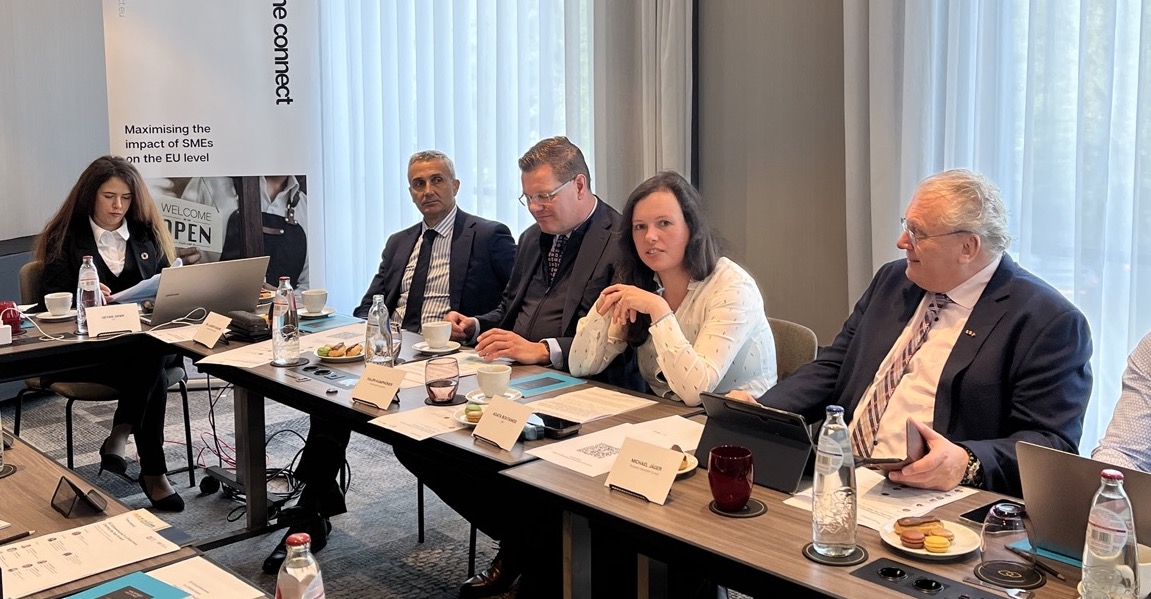
Agata Boutanos delivered the opening keynote, presenting the ZPP report on “EU Competitiveness in a Global Perspective”. She was breaking down the complexity of the report, emphasizing some crucial points. To maintain Europe’s competitiveness globally, Agata stressed the necessity of empowering smaller Central and Eastern European states, advocating for their enhanced access to the internal market. She highlighted the imperative for a fairer framework, suggesting measures such as standardizing e-declarations to streamline procedures. Additionally, she called for reducing regulatory burdens, citing the Corporate Sustainability Due Diligence Directive (CSDDD) as an area for improvement.
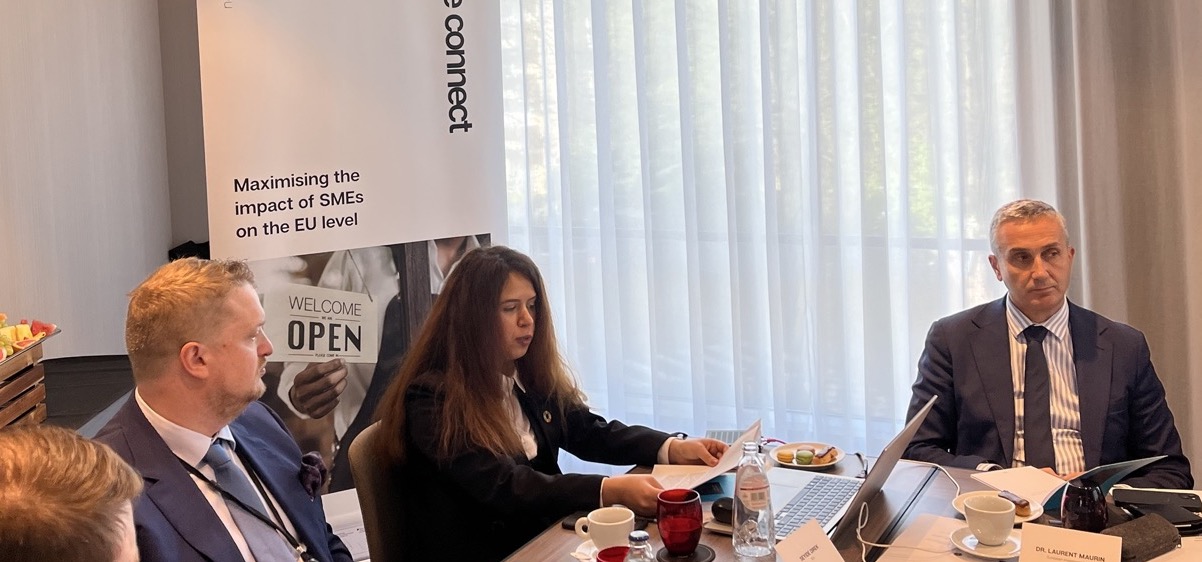
Seyide Direk in her keynote address introduced the report “Exploring CEE and Northern Underrepresentation in EU Institutional Roles”. She underscored the heightened visibility of the underrepresentation, particularly of Eastern European states, in EU institutions, a trend exacerbated by the Russian invasion of Ukraine. This geopolitical event has underscored the importance of democratic values championed by EU institutions. Yet, statistics reveal a stark imbalance in the representation of Eastern European member states compared to their population size, with Western and Southern EU countries continuing to dominate legislative initiatives.
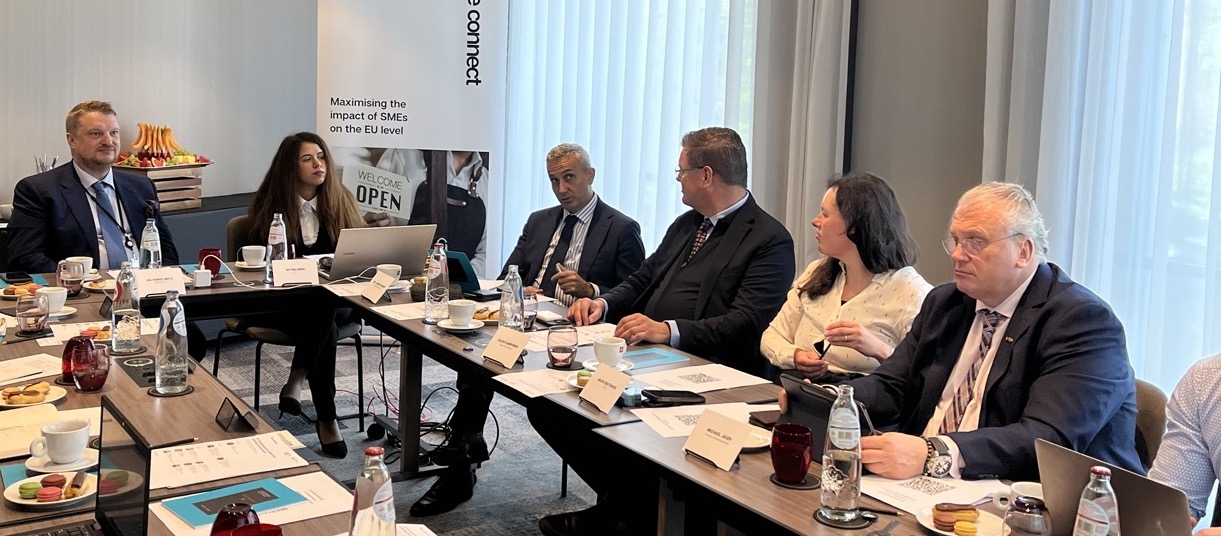
Dr. Laurent Maurin by addressing two contrasting viewpoints on long-term developments, likening them to a glass both half full and half empty. He emphasized the optimistic perspective, noting that the EU’s recovery from the Covid-19 pandemic has surpassed expectations. However, he also acknowledged the challenges ahead, such as the vulnerabilities in the European supply chain, the skills gap among employers, and the anticipated surge in regulations. Nevertheless, Laurent remained forward-looking, highlighting that despite all the challenges, there are still countries eager to join the EU, attracted by the benefits of membership.
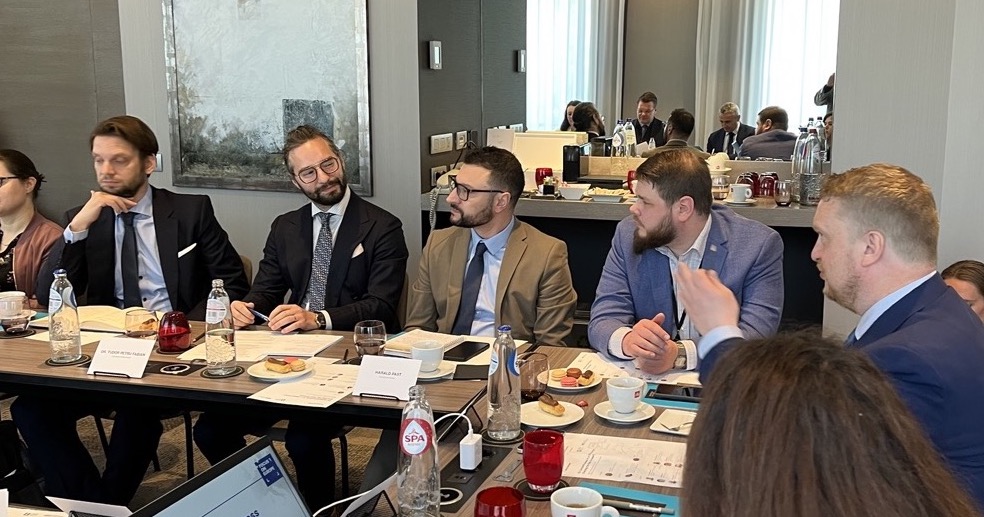
Dr. Tudor Petru Fabian contributed to the debate by delving into the topic of overregulation. He advocated for a shift in focus away from mere buzzwords towards a deeper understanding of the “normative battlefield” created by regulations. Tudor highlighted the increasing burden of diverse regulatory requirements, which he argued continually hampers the operations of EU companies. Additionally, he stressed the need for greater investment in geopolitical risk assessment within policy-making processes. Concluding his remarks, Dr. Fabian pointed out the lack of collaboration between private and public institutions, exacerbating the challenges for a competitive EU. He cautioned against hasty legislative decisions, noting instances of rushed policymaking in the recent past.
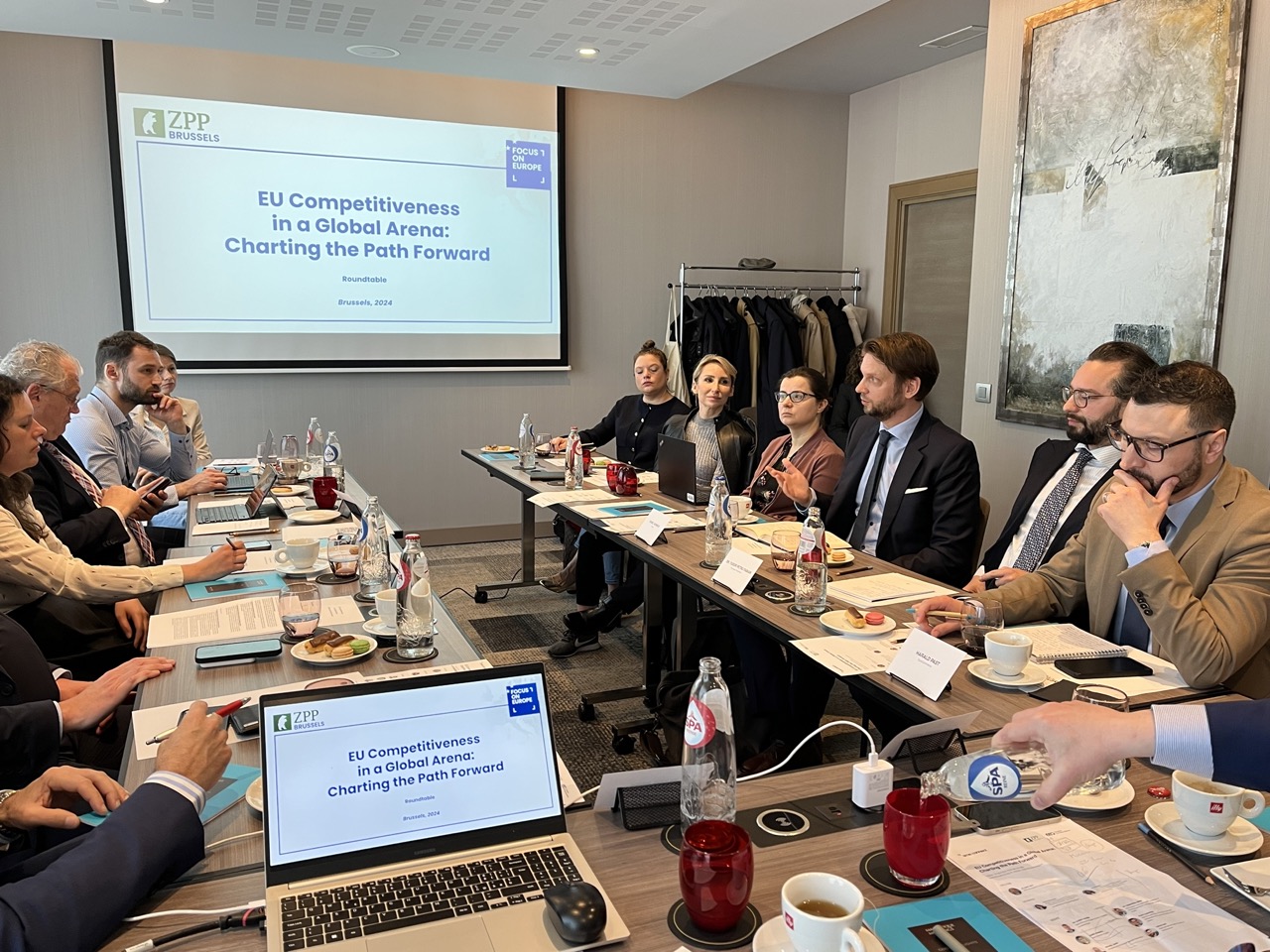
Daniel Wennick draw attention to the challenges faced by the engineering sector, his area of expertise. He underscored the less-than-optimistic prospects within the competitive framework, particularly when compared to economic powerhouses like China, where the EU lags behind. Employing a wry yet poignant analogy, Daniel dubbed the EU the “Silicon Valley of regulatory burdens,” aligning with the sentiments of his fellow panelists. He emphasized that companies and entrepreneurs encounter obstacles to fair competition at every level: local, national, and continental. Despite widespread criticism and public awareness of these issues, member companies of “Orgalim” remain concerned, especially regarding developments in the energy sector.
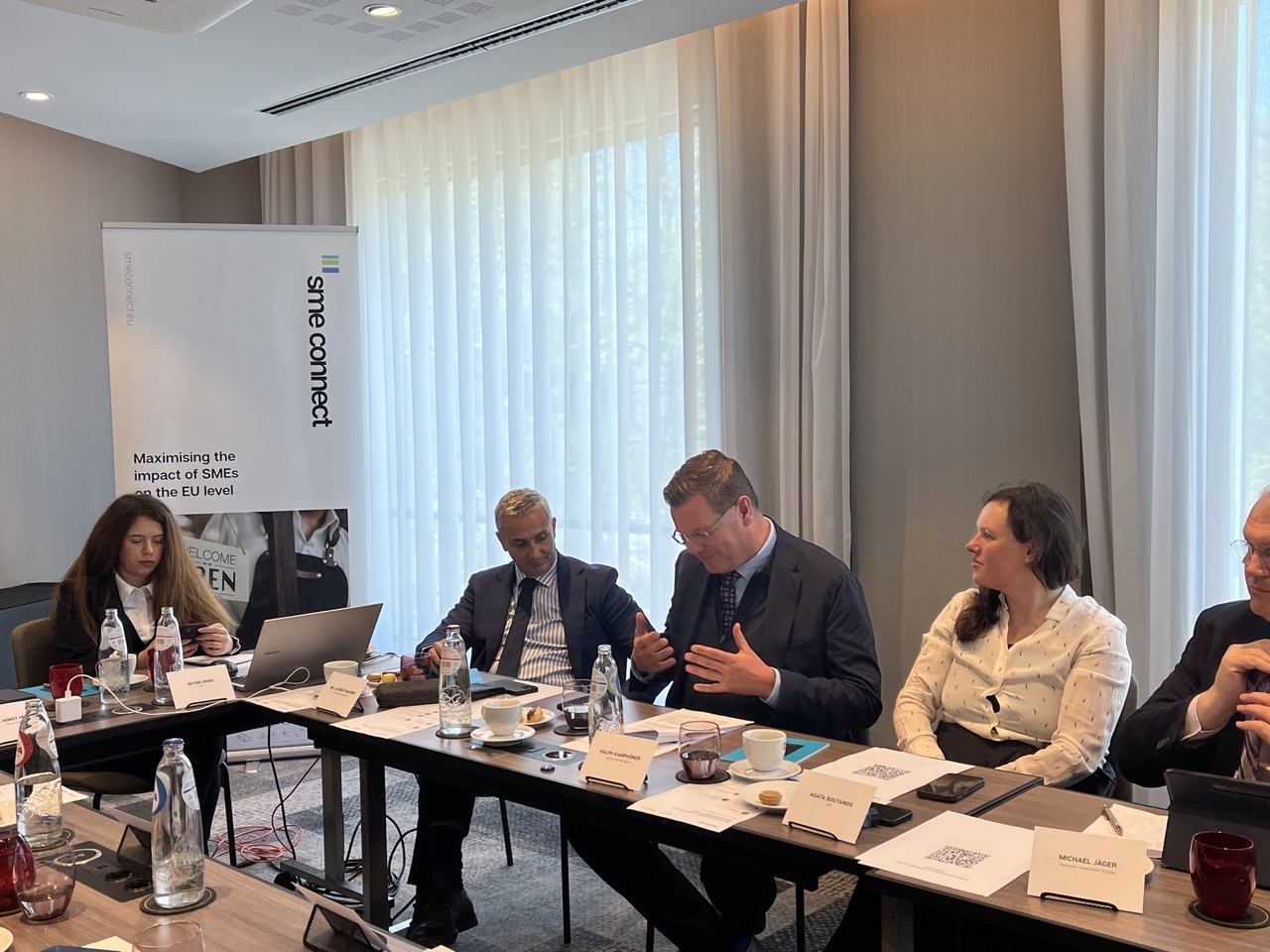
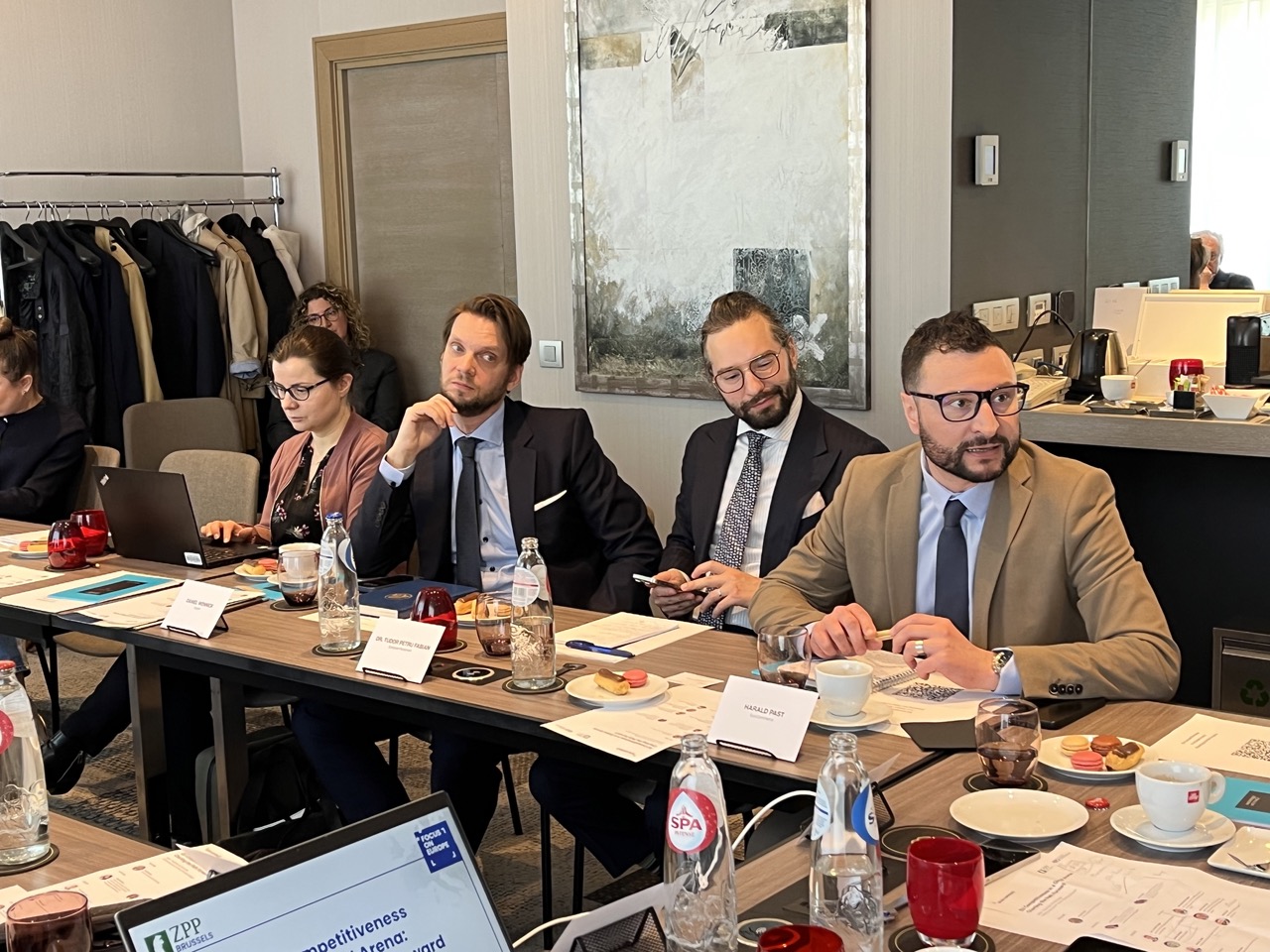
Harald Past addressed some of the most pressing challenges confronting the EU in its pursuit of global competitiveness, notably the digital and green transformations, along with the scarcity of skilled workers. He highlighted the latter as a component of the demographic issue, which is poised to trigger a wave of retirements in the near future. To confront these challenges head-on, affiliated sectors are set to invest 600 billion Euros by 2030. Harald particularly emphasized the longstanding neglect of global competitiveness within the EU’s agenda, highlighting how certain measures disproportionately impact SMEs as a result. Harald stressed on the need for a more supportive framework when it comes to trade relations. He voiced apprehensions regarding potential hurdles faced by SMEs, especially in the realm of customs reform and advocated for implementing measures that would streamline processes and empower SMEs to compete more effectively on the global stage.
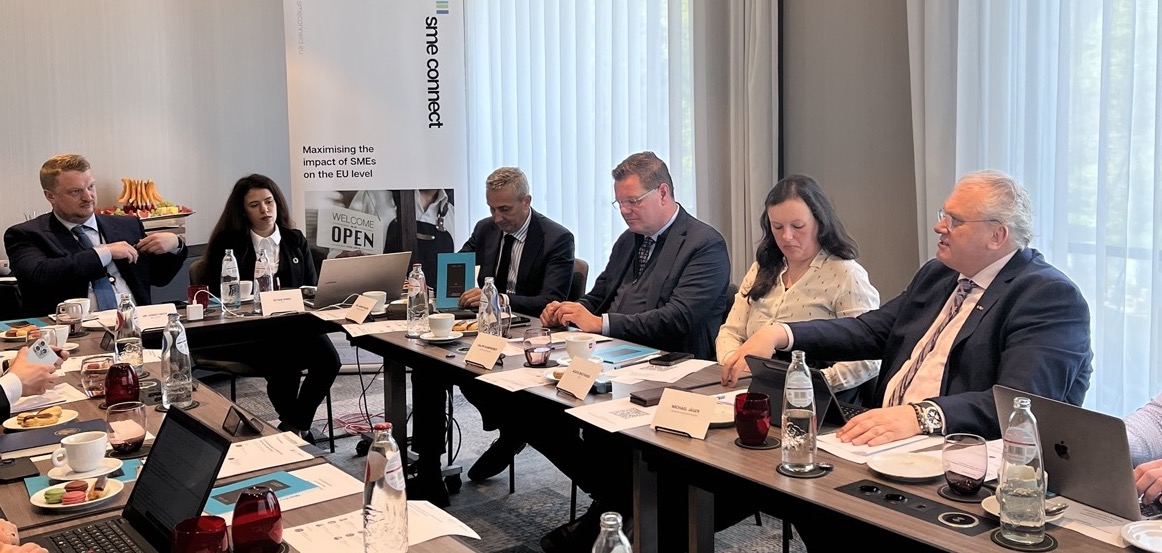
Michael Jäger criticized the EU for deviating from its fundamental values regarding competitiveness. Beyond the already discussed problems and challenges, he identified a significant issue in communication practices: many dialogues and trialogues occur without the involvement of stakeholders from the relevant sectors. This lack of representation extends to member states primarily engaged in these discussions, exacerbating the problem. Michael proposed a shift towards more inclusive debates between policymakers and stakeholders, advocating for solutions driven by market dynamics. He argued that the excessive focus on overregulation overlooks the potential of innovation to drive economic growth.